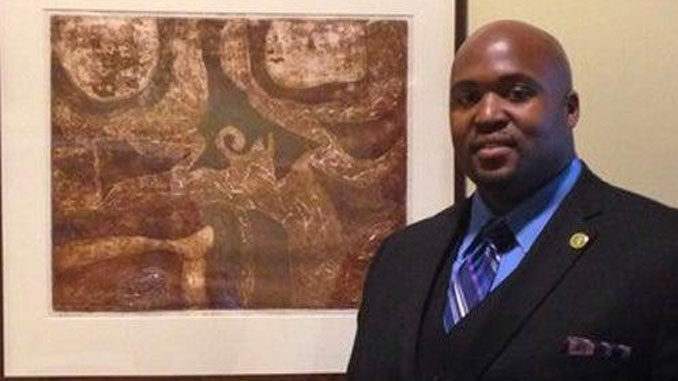
Kelsyn Parker Data News Weekly Contributor
Mental Health Disorders rank as the 11th leading cause of death in the United States for all age groups. COVID-19 has claimed the lives of over 190,000 Americans. This makes for a historical recipe that experts said worsens the toll of the Pandemic.
“At this point, the greatest impact on the mental health of most folks has been the continued uncertainty brought about due to inconsistency in leadership,” said Brian L. Turner, Ph.D., a licensed Clinical Psychologist and an Associate Professor of Psychology at Xavier University of Louisiana. “Many folks with good information are able to adapt and manage. However, the continued back and forth has created anxiety and depressive symptoms in many folks who were already diagnosed with a Psychological Disorder and those experiencing Psychological Distress,” Turner said.
According to a July 2020 Kaiser Health Family Foundation Study, 53 percent of American adults reported that their mental health had been negatively impacted due to worry and stress surrounding COVID-19. The poll reported that the effects of the Coronavirus included, but was not limited to, sleeping, and eating deprivation, increases in alcohol consumption and substance abuse, and the worsening of chronic conditions. In more extreme cases, the poll reported that the social distancing imposed by the Coronavirus has led to isolation and job loss that can cause anxiety, distress, and low self-esteem.
“When the COVID-19 Pandemic first broke out, my stress level was higher than it had ever been in years,” said Constance Bonnet, Ph.D., a 52-year-old family Nurse Practitioner in New Orleans. “I faced severe anxiety at the mere thought of contracting the Coronavirus,” Bonnet said. “This is especially true after losing my friends and loved ones that lived in the city to the virus,” Bonnet added.
The City of New Orleans was deemed an Epicenter of the COVID-19 Pandemic during the early stages of the global outbreak. As of September 2020, New Orleans has seen over 150,000 cases of COVID-19, with over 5,000 deaths. Although the State of Louisiana has officially entered Phase 3 as of Sept. 11, 2020, which includes the allowance of 75 percent occupancy for certain businesses, the Coronavirus’ reach is still felt by many New Orleanians.
“Nothing has been the same since the outbreak. Being the social butterfly that I am, it’s so strange to not come into contact with people like I normally do,” said 53-year-old Jared Riley Sr., who works as a Sanitation Lead for Zatarain’s, Inc. on the Westbank of New Orleans. “Emotionally, I’m stressed as I believe that COVID has caused me to lose friendships I previously cherished prior to the outbreak,” Riley said. He is aware of how the Pandemic has affected him personally, but Riley said he is also aware of how the virus has affected those around him.
“I’ve witnessed some of my remaining friends lose their jobs and homes as the virus stopped their money from coming in,” Riley said. “It has taken a toll on a lot of people differently because they can’t deal with the changes. It has caused most people to be mentally exhausted of the situation, so they simply can’t deal with it,” Riley said.
The Pandemic hasn’t just only affected older residents who have lost loved ones, it also impacted younger residents as well.
“COVID-19 has largely impacted my college experience. Last semester, I was abruptly forced out of my dorm, with little notice,” said Justen Pate, a 19-year-old psychology major at Xavier. “By being a very social person, it was extremely difficult to be locked inside the house and unable to interact with others. I caught myself slipping into a depression,” Pate said. “I had trouble sleeping. I rarely ate, and I could not physically interact with others, something I craved,” Pate said.
As someone who studies Mental Health, Pate said he noticed that his close friends were also struggling with the change in life routines.
“We could not leave the house, go out to eat or do any fun activities, all while not having the slightest clue as to when it would all be over,” Pate said.
Experts shared that it is important for the public to consider strategies to improve Mental Health as the Pandemic drags on through the remainder of the year and into 2021. Meditation and mindfulness training have been shown to enhance emotional control, alleviate stress, anxiety, and depression, and avoid substance abuse. Healthy foods and regular exercise have also been frequently encouraged by experts as a means of stress reduction at this time.
“To reduce my stress and anxiety during these times, I’ve taken it upon myself to meditate daily and pray for better days,” said Kobie Lofton, the New Orleans-based 22-year-old Clothing Brand Owner of Neighborhood Flexer. “Not only that, but I drink a gallon of water per day while lessening my meat intake,” Lofton said.
Lofton said he also works out five days a week to promote his mental stability. “These times call for all of us to remain hopeful that this Pandemic will soon be over. Whether it be exercising, praying, meditating, or eating healthy, we all need to find our way to achieve our own inner peace,” Lofton said.
Recommended For You.



Be the first to comment